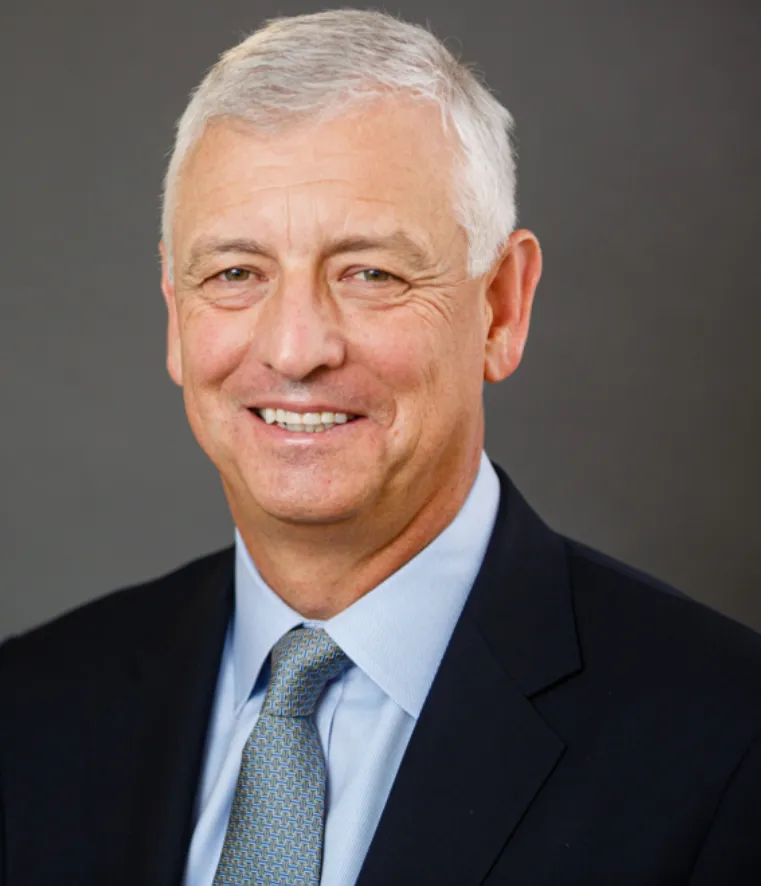AECOM leaders are confident about the infrastructure sector and the potential for additional permit reforms under the incoming Trump administration.
In an earnings call Tuesday, CEO Troy Rudd said that most Infrastructure Investment and Jobs Act funding is not at risk and noted that voters continued to demonstrate support for infrastructure funding in the November elections at the state and local levels.
“First and foremost, the election creates certainty. Infrastructure investment is a bipartisan priority, and we do not foresee this changing,” Rudd said on the call. “While specific initiatives and objectives may shift, with 70% of our workforce fungible across market sectors, we are in a great position to capitalize on the investments in the U.S. economy.”

Troy Rudd
Permission granted by AECOM
Rudd also cited growth opportunities emerging from the new administration. For example, a reduction in government staffing as promoted by President-elect Donald Trump would increase demand for advisory technical and program management services to support infrastructure investment.
“Prudent deregulation is a positive for our clients and our business,” Rudd said. “This includes permitting reform, which is one of the greatest bottlenecks to infrastructure investments and simplification would increase the volume of project opportunities.”
AECOM also completed the acquisition of EMPSi, a Boulder, Colorado-based environment permitting practice focused on federal land, which is a rapidly growing opportunity under the incoming Trump administration, according to CFO and COO Gaurav Kapoor.
FY 2024 and Q4 numbers
Despite some impacts from hurricanes Helene and Milton, AECOM posted higher revenue, profits and backlog in its fiscal full-year and fourth quarter earnings report.
The firm’s revenue for its fiscal year, which ended Sept. 30, was $16.1 billion, up 12% from 2023. Revenue stood at $4.11 billion in the fourth quarter, up 7% from the same period last year.
AECOM reported a full-year profit of $402.3 million, up 627% year over year. For the fourth quarter, profits were $172.5 million, up 577% from Q4 2023. These large percentages stem in part from lower profits last year.
Backlog for the quarter was $23.9 million, up 3% YOY, and Rudd said the firm’s pipeline achieved a new high.
AECOM also successfully resolved two legacy project disputes, resulting in gross cash infusion of approximately $130 million, Kapoor said.
Though company leaders will continue to make investments in the business, they are not planning to seek out large acquisitions in fiscal year 2025, according to Rudd.
“We’re focused on growing the business organically,” Rudd said. “When you look at making an acquisition in today’s market, the prices are very expensive, and so just in terms of a return model, it doesn’t make any sense to do that.”
Hot sectors
As the United States’ aging infrastructure continues to be battered by extreme weather, Rudd said the need for investment in the sector has never been greater.
That’s a trend worldwide: Urbanization is transforming infrastructure demand around the globe, Rudd said, creating “an enormous investment demand for safe, reliable drinking water and for building modern transportation systems while minimizing environmental impacts.”
To that end, AECOM recently launched a water and environment advisory business and named Jill Hudkins head. It expands on the firm’s capabilities in high-growth areas such as advanced digital water asset management and automation, environmental permitting, per- and polyfluoroalkyl substances (PFAS) remediation and water solutions in high-tech environments.
“A great example of the opportunity is in digital water, which is a $70 billion opportunity through 2030,” President Lara Poloni said. “In the U.S. alone, there are 500 municipal water utilities serving populations of over 500,000 people, and each requires substantial digital investments to modernize operations, embed predictive analytics and cybersecurity and drive process efficiencies.”
Rudd said he expects this business to double within three years.
Energy demand for electrification and for data centers to support artificial intelligence is also creating opportunities for the firm, Rudd said. These include permitting, air quality, energy storage and grid modernization jobs.
